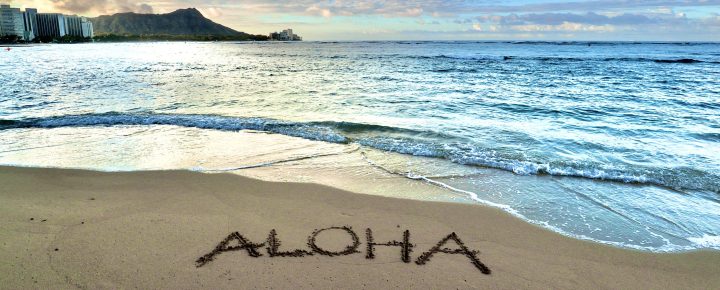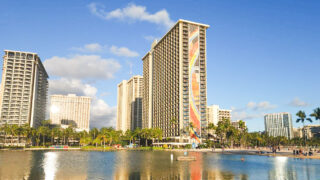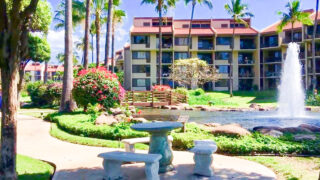A frequent commenter, David B., alerted us to the hearing that took place Friday on Hawaii’s Senate Bill 2919. “I just received an “alarmed” email from our Vacation Rental Manager. They are asking their owners to testify at a hearing…which, if passed, would expand the zoning powers of counties to amortize or phase out transient accommodations in residential and agricultural zones. If you think Hawaii vacations are expensive now, watch what happens if this passes.”
Committee chair, Rep. Luke Evslin from Kauai, said that the goal of the pending legislation isn’t to phase out Hawaii vacation rentals per se. Instead, it removes any obstacles to the counties doing so themselves by allowing them to change zoning ordinances. This could help return prior vacation rentals to long-term housing.
Data is flying fast and furious about who owns and dominates the Hawaii vacation rental sector. Governor Green last said, “non-state residents own 52% of all short-term rentals in Hawaii, and 27% of short-term rental owners own 20 or more units.” Some further clarification on the data is needed.
Representatives from the Hawaii Mid and Short-Term Rental Alliance (HIMAST) were also present at Friday’s hearing. That group now purports to represent over 35,000 legal vacation rentals throughout Hawaii. “HIMAST advocates for the legal mid and short-term rental industry in Hawaii, promoting economic viability for Hawaii residents. We are part of the housing solution, providing temporary and transitional housing for residents and visitors, locally-owned rental accommodations that generate employment and resident income, and substantial tax revenue for the state and counties.”
Greatly intensified by the Maui wildfires, the Hawaii legislature is making bold moves to try and regulate short-term vacation rentals. The current direction is providing counties, rather than the state, the power to phase out such rentals entirely. This reflects outspoken opposition now primarily related to housing shortages on Maui and the other islands, and the impact that vacation rentals have on local communities.
Critics argue that any proposed ban would be met with unintended consequences and fierce legal challenges. Nonetheless, supporters say prioritizing affordable housing over Hawaii tourism outweighs all possible concerns. The debate’s outcome remains uncertain, while the issue has sparked nationwide attention regarding the future of Hawaii tourism as we know it today.
Despite opposition, most Hawaii lawmakers appear ready to curb Hawaii vacation rentals.
Other bills are set to work in concert with SB2919, and will help change zoning regulations and provide remuneration for those converting short-term rentals to long-term.
Hotly contested comments continue to arrive.
Mainland and foreign-owned hotel-based interference. Countless comments have spoken about the legislature and governor aligning with well-funded mainland-owned hotels and their special lobbying interests. Last year, nearly $6 million was spent on lobbying during the Hawaii legislative session according to the state’s ethics commission.
Some have said that vacation rentals benefit local residents more, although conflicting data also shows that a large percentage of vacation rentals are not locally owned.
Infringement on property rights. Others have mentioned that such legislation is unfair or illegal and will eventually come to penalize those who both provide and rent short-term Hawaii vacation rentals. Many have said this will result in a long-term court battle that will benefit no one.
Short-term rentals exacerbating the Hawaii housing crisis. It is widely stated that Hawaii vacation rentals have made the housing problems Hawaii faces far worse by depleting needed housing stock for vacationers.
Investor exploitation in Hawaii vacation rentals: Many hold that out-of-state investors exploit the Hawaii housing shortage by owning multiple legal short-term rentals.
Undue economic impact: Will banning short-term rentals significantly hinder economic recovery in Hawaii? In addition, many have said that the burden is falling unfairly on a single group of tax-paying properties.
Visitor preference for vacation rentals.
Visitors, in many cases, prefer short-term rentals in Hawaii over hotels. We’ve seen that in hundreds of not thousands of comments stating that if there are no longer vacation rentals, you won’t be returning to Hawaii.
Some studies have indicated that a reduction in vacation rentals will in fact decrease the number of Hawaii visitors. And perhaps that is well aligned with Hawaii’s goals. When many travel to Hawaii, they like the idea of a vacation rental with a kitchen, living room, and separate bedroom. It provides the feeling of having a more local experience.
If you typically choose Hawaii vacation rentals, would you be more or less inclined to visit Hawaii if that type of accommodation becomes limited or too expensive?
SB2919






Tourism will continue to decline due to foolish law that will damage proper values. Ex – Kamaaina here that watches the “ old school” regimes fail to look forward and cling 1950s mentality
STRs make up apprx 5% of housing Green and corp hotel lip service about LTHousing is BS. STR condos will not revert to LTR and are not going away but will be recategorized as Extended Stay. Green and his rich white corp hotel buds have set in motion a panic STR condo sell off. They will swoop in acquire at what they anticipate less than half market incl. bk foreclosures. The financil fortunate owners left over will be tax req. to book/manage through(in order to STR)guess who. Advice buy lots of Marriot Intl., Pritzker, Hilton WW stock cant beat em get rich off em. Us Vac. Maui21yr owner8yr condo off beach. Maui Strong being played or $$. Mahalo nui loa HI!
I’m surprised that this hasn’t been mentioned before. For those folks who need multiple bedrooms and a kitchen and want to stay for longer periods of time, perhaps the answer is a timeshare? Especially if you come “every year” as some posters here have said they do. I know that they have their own issues, but as an alternative to an STVR it seems to me like it might be workable. They resemble the amenities of a condo STVR at least.
There’s all kinds of people in this beautiful world.
Some only stay at hotels. Others at bed and breakfast’s. Some do timeshares. And others love staying in a home.
There’s room for it all.
Variety is part of the thrill of life.
Dear Kaliko,
You don’t know me, but I care about other people. We are all connected, so it’s important to step in kindness with one another.
I would like to point something out in the bill being pushed through legislation to ban short term rentals.
According the bill, short term rentals take up less than 5% of the housing on the islands.
To me, the answer to the housing problem is to build affordable housing.
If you look to progressive Vienna, they have “social housing.” You pay a percentage of your income in rent. This makes it such that all economic levels live in the same location, with the same amenities. It’s nothing like the projects that are abysmal on the mainland.
With love, G
Hawaii needs to give the tourists the accomodations they desire. Let the market decide. The more tourists the more revenue the Hawaiian economy makes. Everyone wins, government makes more revenue, Hawaiians have more jobs, restaurants serve more meals, retail shops make more money. It’s a win-win! Short term vacation rentals in non vacation zones need to have on site care takers which would provide more jobs and housing. Having a care taker on site makes the short term rental a better neighbor. All short term rentals need to pay their income taxes to both the state and counties. With the extra income, government can improve infrastructure (cesspool vs city sewer). Maybe government can build affordable housing for locals. Just some ideas!
The problem is that the “market” creates situations like too many tourists that cause destruction of the very reason people come to Hawaii. In the case of STVRs that are outside the “tourist areas” they compete with locals who need housing and often create problems in the neighborhood. Addressing some of these issues means some kind of controls need to be put into place. Unfettered capitalism creates chaos, as is the case with STVRs in Hawaii. If you need a place with multiple bedrooms and a kitchen then that’s what timeshares are good for.
“Hawaii needs to give the tourists the accommodations they desire. Let the market decide. ”
No we don’t! You go ahead and have some of Your house be a crash pad for tourists. But don’t tell your neighbors. They might have a few thoughts on it.
I rent a condo on Kauai for three months. The prices already increase each year and are escalating even more post-Covid. If short term rentals are so limited that they become prohibitively expensive (and they’re getting close to that now, for me), I won’t be able to return to Hawaii.
Hotels are too expensive, don’t allow freedom of locally bought foods to cook/ prepare yourself and are helping Hawaiian economy.
Will not go back to hotels so no more Hawaiian vacation.
Seems this is beneficial to hotel investments that are not Hawaii friendly!?
This will be the 3rd visit to Hawaii and I am renting a short term rental. Is this changes I to will not return to Hawaii. I was really planning on moving there after I retire but this government sounds worse than NY. This isn’t fair for folks who love to visit or to the businesses who count on tourism.
If Hawaii had plenty of housing I would welcome you (and remote workers). However it does not, and probably never will, so moving here after you retire is just taking one more house away from someone who does work here.
Without jobs there will not be anyone there buying a house. Someone has to have the money to buy a house in order to rent it out, correct? What type of jobs are there for locals right now to pay them enough to buy a home?
If “there will not be anyone there buying a house” then that means housing will become more affordable. Why does everyone assume that the entire state economy would implode if we had *Any* reduction of tourism (and therefore the more tourists the better, apparently with no limit)? There are many jobs that are not affected at all if people come or not. And people also like to claim that they’re helping the local economy because their short-term rental helps a few low-paying jobs in cleaning and maintenance. Poor quality jobs like that make people work 7 days a week in multiple jobs to barely scrape by. No, thanks.
You’re absolutely right. 800 businesses destroyed. All this housing “locals” is merely kicking the can down the road. Jobs still won’t be there after 22-24 months of free FEMA housing. Then what??
You know what most places do? They build to the demand…..
Everyone who lives in Hawaii know that all vacation rentals could be eradicated and would have absolutely no effect on local rentals or local home ownership.This is just another step in destroying Hawaiis number one industry to economically destroy Hawaii.
Tourists having a say in any of this goes to show that people do not care about others. These islands are homeland for Hawaiians and they deserve more than this. Get rid of these vacation rentals and if a tourist has an issue with a hotel, because it doesn’t have a kitchen (eye roll), then maybe reevaluate your priorities. A human life is more important than your vacation. Hawaiians have a right to be on these islands and to be accommodated.
So you believe the lie pushed by the hotel lobby that a vacation rental closed down will automatically turn into a house for a local? I got news for you, Hawaii is one of the most desirable destinations and there are plenty of rich people who will just buy up that home as a second home and use it just a few weeks of the year. The problem in Hawaii is people are just looking for a free handout from the govt. It’s a pipe dream. The hotels are owned by mainland and international corporations. Vacation rentals are the only avenue for locals to actually be upward mobile financially and you’re ready to hand the offshore owned hotels a monopoly on overnight stays.
You are right on point… even if all of the STR houses went up for sale, there is no way the majority of locals could afford them.
Plus… if Green and others were serious about making more housing available, wouldn’t they be able to re-zone agricultural land so houses could be built? It would likely be a similar issue though where locals likely wouldn’t be able to afford them unless they were designated as low income housing and people had to qualify for them.
Wonder how many
Local houses could have been built on all that precious land where the solar panels are?
Um it’s an Island…
Solar panels are preferred to bringing in barges full of oil. Possibly cheaper too since sunshine is a natural resource the islands have plenty of (as opposed to oil which they have none)
Isnt the housing crisis also a water crisis?
A number of years ago, the building stopped because there was no move water allotments to be had?
It’s an Island, there is only so much to go around
Regardless of what you might read, the governments of the islands are fond of saying “It’s not a water shortage issue, it’s a water distribution and management issue”. In other words, there’s enough water, but it is not being distributed equitably to everyone who needs it.
However, water is indeed a precious and limited resource on the islands and in other parts of the country and world. Everyone should make the effort to manage it thoughtfully and frugally.
California natives have a right to remain in their California homeland.
Hawaiian natives have a right to remain in their Hawaii homeland.
Colorado natives have a right to remain in their Coloradan homeland.
And yet, for years now, it’s not happening. People who have grown up in a certain place, and whose families have lived there for generations, are being pushed out because of no real estate inventory and high prices.
Do some reading. You’re not alone.
It is nice to think about a perfect Utopian society, but we need to account for reality as well. So, what frustrates so many people commenting is that some (including the governor) believe that, if tourists (or STRs) were gone, life would continue as usual, but without tourists (or STRs). It just doesn’t work that way. The reality is that Maui will not support all the Hawaiians or locals or whatever entitlement we want to use, without tourism. Without tourism, Maui can support 3000 to 5000 people — like Lanai and Molokai. That will displace far more locals. That’s the reality.
You realize that it’s not a zero sum game here, right? For example, even if STVRs disappeared entirely, there would still be the hotels and the timeshares. Last year (2023) there was demand for 15.2 million room nights for hotels and hotels have about a 75% occupancy rate. there are also somewhere in the neighborhood of 12K timeshares in Hawaii, with an occupancy rate of closer to 80-90%. Those wouldn’t go away if you eliminated STVRs entirely, which I don’t think anyone is trying to do. So, no, I don’t think that STVRs being controlled is going to tank the Hawaiian tourist economy.
Really? I wish we had the demographics of displaced “locals”.
And you think tourists opinion matters when it comes to greens actions.
Tourists are the tail not the dog.
I respectively disagree. STVR are the Only affordable option for a middle class family from anywhere to enjoy a once in a lifetime Hawaiian vacation. Take them away and you will create a playground for the rich and low paying service jobs that cater to this elite tourism industry.
People who do not live here that own property (especially more than one) should not be allowed to do what they’re doing. Hawaiian people are more important than tourism and certainly more important than the people making money off of these properties, who don’t reinvest back into the community. Why this is a debate is only because there are people who do not care for others. Selfishness and greed have driven more Indigenous Peoples away from their homeland and not by choice. Get rid of these vacation rentals. Hawaiians deserve more than to be tossed aside for a dollar.
So, again, Nahele…this goes for hotels too, correct?
I don’t quite understand why you think short-term rentals don’t invest in the community. Where is your anger coming from, because it is not coming from any kind of truth.
Short-term rental owners invest in carpenters, housekeepers, property management, plumbers, electricians, handymen, builders, I could go on and on. My neighbor’s condo always has someone local in there, working on something.
Short-term rentals put food on the tables of all of the above people, plus buy goods, food, and services from local business when they are here.
So I have to deduce that you are mainly talking about hotels, which have self-contained everything, with most profits going elsewhere.
It truly sucks that the bill being proposed by Brenton Awa can’t include u.s. citizens who are non residents to Hawaii and instead only targets foreigners abroad. The biggest threat to Hawaiians in Hawaii, is the u.s. american 🤦♂️. Pretty crazy that governments ensure the safety of indigenous plants, but not the indigenous peoples suffering from mass gentrification and being forced to move to the u.s. or go homeless. As for me and my son, I don’t care if I have to live on the beach; we will remain here forever.
If condos were no longer available, I would not go back to Hawaii. Period.
Hot topic! Demographics rule! Boomers are aging out of travelling. Many wealthy countries have low birth rate, especially Japan! Many young people can’t afford costly vacations. Will have a natural tourist reduction over the next 10-20 years.
Demographics is destiny.
Many young people have no problem affording an expensive Hawaii vacation by simply using their free student loan money.
Good point. We who have chosen to work and defer the finer things in life (Hawaiian vacations) are subsidizing them with our taxes which payoff their loans. Of course we must not forget that Hawaii has one of the highest percentages of welfare recipients which of course comes from our tax dollars.
Before you call out our state as welfare dependent, please look through your own window. Hawaii this year ranks 30th in federal support dependency. With the exception of New Mexico, Vermont, Maine and D.C., the rest of the top thirty are all conservative states. Why? Because most of those states refuse to tax their citizenry to provide and promote the public welfare.
Say what you will about Hawaii and its politics, but the most dependent states on federal dollars are by far those who espouse “conservative” principles.
That’s because the state takes in so much tax revenue from things like….let me guess, tourism.
I guess it depends what you’re reading. A 2023 SmartAsset study says:
“New Mexico is the only state paying less in taxes than it receives in support – paying only 85 cents in federal taxes for each dollar of support. This was the only state with that paid less in federal taxes than it received back. The next four most dependent states …receive nearly as much in support as they send to the federal government each year. Hawaii, Vermont, Louisiana, Alabama and Wyoming also top the list of most dependent states.”
The list shows Hawaii as the 6th most dependent state.
30th on one list, 6th on another…
Source:
smartasset.com/data-studies/states-most-dependent-federal-government-2023
Our last 5 family vacations have all been to Hawaii, we have rented condos 3 times and 2 homes, across 4 Islands, all via Vrbo. Having a kitchen is a game changer and I have no desire to stay at a hotel with no kitchen for more that a few days.
On the short term rentals story I agree more housing for locals comes first but there are alot of STR in resort areas like kaanapali that should be exceptions for. Also nonresident owners should only be allowed so many so locals can buy also. I think taking all of them from tourist will stop them from visiting. It’s so expensive now that tourists have slowed. That would cost jobs. I think the government has zero clue what their doing.
Aloha,
Here are the current tax rates from the web.
2022/2023 Maui County Property Tax Rates. All rates shown below are per $1,000 of assessed value.
Owner Occupied
Tier 1: up to $1,000,000 Formerly $2.41 now $2.00
Tier 2: $1,000,001 to $3,000,000 Formerly $2.51 now $2.10
Tier 3: more than $3,000,000 Unchanged $2.71
Short-Term Rental
Tier 1: up to $1,000,000 Formerly $11.11 now $11.85
Tier 2: $1,000,001 to $3,000,000 Formerly $11.15 now $11.85
Tier 3: more than $3,000,000 Formerly $11.20 now $11.85
STR subsidizes owner occupied by 4-6 times. If STRs are forced out the true cost of owner occupied housing will present itself.
Mahalo
The tax rate for owner-occupants has been reduced for 2023-24. The owner-occupant rates are now:
Tier 1: $1.90| Tier 2: $2.00 | Tier 3: $2.75
No change for STRs at $11.85.
In other words, Tier 1 STR owners pay over 6 times as much in property taxes as owner-occupants.
Yeah and the high tax rate isn’t limited to STR either. Non owner occupied pay about 10X the rate of owner occupied.